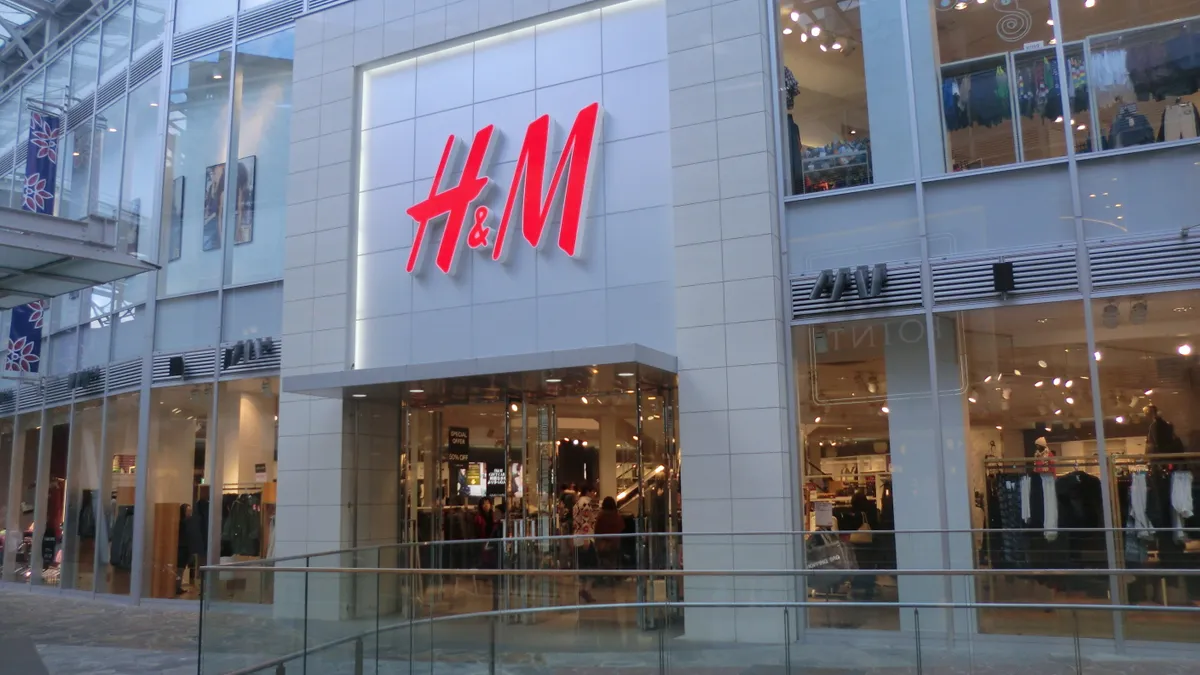Dive Brief:
-
H&M is readying the launch of its latest brand, Nyden (Swedish "ny" meaning "new" and "den" meaning "it") aimed at millennials and their increasing rejection of fast fashion. H&M didn't immediately respond to Retail Dive's request for more details.
-
Nyden is led by Oscar Olsson, who has been at the company since 2013, in charge of its innovation efforts, according to The Cut. The debut represents the latest brand launch in a flurry of such additions in recent years, including the introduction of its new Arket brand last year.
-
The effort comes shortly after the fast-fashion company last month, amid rising inventories and tanking sales, announced it's picking up the pace on a transformation plan that involves closing stores. Q4 sales fell 4% to 50.39 billion kronor ($5.97 billion) from the same period a year ago and foot traffic to stores declined.
Dive Insight:
There are no details about Nyden officially on the company's site, and the brand's Instagram page is mostly full of black squares — except for one speedy video that is really just a series of fleeting images: As seen in this post shared by /Nyden (@wearenyden).
H&M is grappling with its slow pivot to e-commerce by improving websites and better integrating stores with online sales and fulfillment. But the company is also dealing with millennials' ebbing interest in its core proposition — fast fashion. The shock of coming of age—culturally and financially—around the time of the Great Recession has kept millennials budget-minded. But the generation is much more flush that it was several years ago, having aged into its heavy spending years along with a steadily improving economy.
Plus — although it took a while — other apparel makers, including top designers, have sped up their supply chains so that consumers are no longer forced to turn to fast fashion for the latest designs. The likes of Burberry, Tom Ford, Michael Kors, Thakoon Panichgul, Rebecca Minkoff and other high-profile fashion names have drastically reduced the time they take to bring designs to market after fashion shows. In fact, many such brands have adopted a "see-now, buy-now" model, which allows consumers to buy designs straight off of the runway.
In addition to speed and spending power, millennials also have a keen interest in sustainability, which hasn't been a fast-fashion strong suit. While there have been some shifts in the millennial mindset, it remains a complex set of priorities, which Olsson has been tasked with balancing, with the help of creative gurus and data.
"Generally, I think a spin-off brand for millennials does have the potential to succeed," MaryLeigh Bliss, chief content officer at YPulse, told Glossy magazine. "Affordable luxury is another concept that certainly resonates with this group, which has a very different idea of what luxury is than previous generations. Luxury doesn't have to be exclusive or expensive, as long as it feels luxurious. To millennials, luxury products are high quality, designed beautifully and elegant, not necessarily high cost."
New global brands are essential to H&M's growth strategy, the company has said, noting last year that the value of the COS brand, which reached revenues of around 10 billion krona ($1.19 billion) last year with profitability in line with that of the H&M brand, "already far exceeds the amount we invested in it."
















